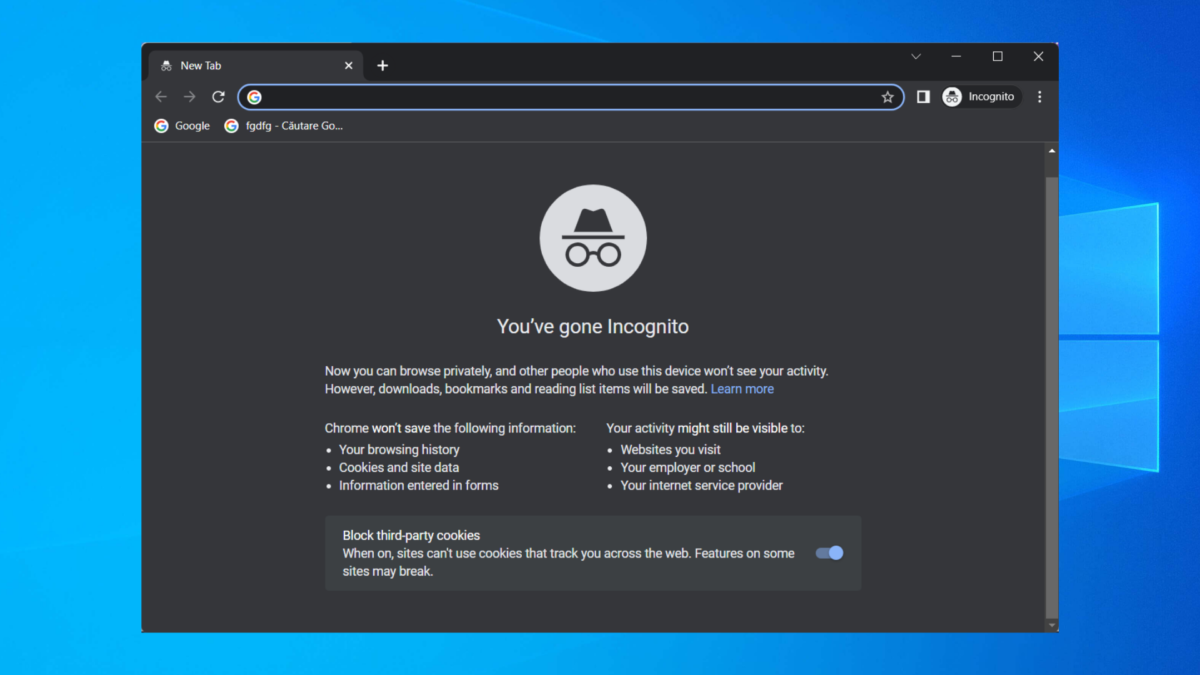Introduction
When you power up your Windows computer, you might notice that Firefox, your trusted web browser, also springs to life without you even clicking on its icon. This automatic startup behavior can be both convenient and perplexing. While it's handy to have your favorite browser ready to go as soon as your system boots up, you might wonder why this happens and whether it has any impact on your computer's performance.
In this article, we'll delve into the intriguing world of Firefox startup behavior on Windows systems. We'll explore why Firefox seems to have a mind of its own when it comes to launching itself during system startup. Additionally, we'll uncover the potential effects of this behavior on your computer's performance and provide you with practical steps to control Firefox's startup behavior, empowering you to tailor your browsing experience to your preferences and needs.
So, let's embark on this journey to unravel the mysteries behind Firefox's automatic startup on Windows systems and gain a deeper understanding of how to manage this behavior effectively.
Explanation of Firefox Startup Behavior
Firefox's automatic startup behavior on Windows systems is a result of a feature called "Run at Startup." When you install Firefox on your computer, it gives you the option to allow the browser to start automatically when you boot up your system. This feature is designed to provide users with quick access to their preferred web browser without having to manually launch it every time they start their computer.
The "Run at Startup" feature is particularly useful for individuals who rely on Firefox for their daily browsing activities. By enabling this option, users can seamlessly transition from powering up their computer to accessing the internet without any additional steps. This convenience aligns with Firefox's commitment to delivering a user-friendly and efficient browsing experience.
Under the hood, Firefox achieves this automatic startup behavior by adding an entry to the Windows Registry. This entry instructs the operating system to initiate Firefox when the system boots up, ensuring that the browser is readily available for use. While this feature streamlines the process of accessing Firefox, it's important for users to understand its implications, especially in relation to system performance.
By comprehending the mechanics behind Firefox's startup behavior, users can make informed decisions about whether they want the browser to launch automatically with their system. This understanding empowers users to tailor their browsing experience to suit their preferences and optimize their computer's performance based on their individual needs.
In the next section, we'll delve into the potential impact of Firefox's automatic startup on system performance, shedding light on how this behavior may influence the overall responsiveness and efficiency of your Windows computer.
Impact on System Performance
The automatic startup behavior of Firefox on Windows systems can have notable implications for the overall performance of your computer. When Firefox launches alongside the system boot-up process, it consumes system resources, including memory and processing power, to initialize its operations. This simultaneous activation of Firefox and other essential system processes may lead to increased system load during the startup phase.
As a result, the system's boot-up time may be prolonged, potentially delaying the availability of other critical applications and services. This delay can be particularly noticeable on computers with limited resources or older hardware configurations, where the concurrent activation of multiple applications during startup can strain the system's capabilities.
Furthermore, the additional memory and processing resources utilized by Firefox during startup may impact the responsiveness of the system post-boot. Users may experience a lag in accessing and utilizing other applications immediately after the system has started, as the resources are partially allocated to accommodate the simultaneous launch of Firefox.
Moreover, the cumulative effect of multiple applications, including Firefox, initiating during system startup can contribute to a gradual decline in the overall system performance over time. As the number of startup applications increases, the system's boot-up and operational efficiency may diminish, potentially leading to longer wait times and reduced responsiveness during regular usage.
It's important to note that the impact of Firefox's automatic startup on system performance can vary based on individual system configurations and the presence of other startup applications. While modern computers with ample resources may exhibit minimal performance impact from Firefox's automatic startup, older or resource-constrained systems may experience more pronounced effects.
Understanding the potential implications of Firefox's automatic startup on system performance empowers users to make informed decisions regarding the management of startup applications. By evaluating the trade-offs between convenience and system performance, users can tailor their system's startup behavior to align with their specific needs and preferences.
In the subsequent section, we'll explore practical steps to disable Firefox's automatic startup on Windows systems, providing users with the flexibility to optimize their system's performance while retaining control over their browsing experience.
How to Disable Firefox Startup on Windows Startup
Disabling Firefox's automatic startup on Windows systems is a straightforward process that empowers users to exert greater control over their system's startup behavior. By customizing the startup configuration, users can optimize their system's performance and streamline the boot-up process, all while retaining the flexibility to launch Firefox at their discretion.
Method 1: Using Firefox Settings
-
Launch Firefox: Open the Firefox browser on your Windows computer.
-
Access Options: Click on the three horizontal lines in the top-right corner to open the menu, then select "Options."
-
Navigate to General Settings: In the left-hand menu, click on "General" to access the general settings for Firefox.
-
Disable "Run at Startup": Scroll down to the "Startup" section and uncheck the option that says "Always check if Firefox is your default browser at startup."
-
Confirm Changes: Once you've unchecked the option, close the Options tab. Firefox will no longer start automatically when you boot up your Windows system.
Method 2: Using Windows Task Manager
-
Open Task Manager: Right-click on the taskbar at the bottom of your screen and select "Task Manager" from the context menu.
-
Navigate to Startup Tab: In the Task Manager window, click on the "Startup" tab to view a list of programs that launch at startup.
-
Disable Firefox Startup: Locate Mozilla Firefox in the list, right-click on it, and select "Disable." This action prevents Firefox from launching automatically when you start your computer.
By following these methods, users can effectively disable Firefox's automatic startup on Windows systems, providing them with greater control over their system's startup configuration. This level of customization enables users to tailor their computing experience to align with their specific preferences and optimize their system's performance based on individual needs.
Empowered with the knowledge of how to disable Firefox's automatic startup, users can make informed decisions about managing their startup applications, striking a balance between convenience and system performance. This flexibility ensures that users can enjoy a seamless and efficient computing experience while retaining control over their browsing habits.

























